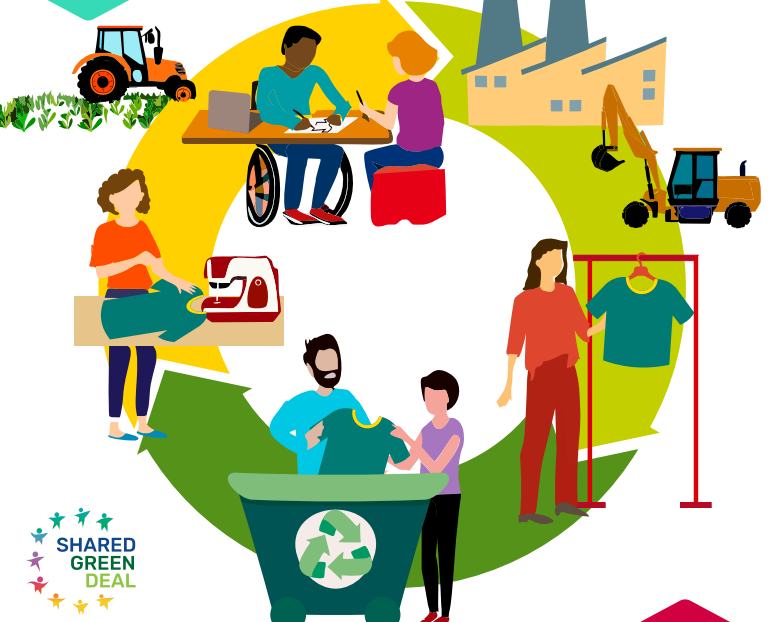LAHs acted as catalysts for engaging local stakeholders—businesses, policymakers, researchers, and civil society—enabling them to co-create solutions, share good practices, and test sustainable business models. Each hub was tailored to a resource-intensive sector (e.g., textiles, construction, agri-food), contributing to a thriving circular ecosystem.
Key outcomes relevant to Symcraft:
-
Design Thinking for Circular Innovation: Each LAH ran structured workshops using design thinking to identify challenges, ideate solutions, and gather feedback. These sessions significantly improved participants’ problem-solving capacities and catalyzed concrete prototypes, such as garment repair services (France) and biofertiliser reuse from food waste (Portugal).
-
Experimentation & Prototyping: LAHs enabled low-risk piloting of new circular models. Examples include textile upcycling systems, construction waste reuse strategies, and circular collection centers—highlighting how businesses can innovate without major upfront investment.
-
Skills & Knowledge Platforms: The report underscores the necessity of investing in circular economy education. LAHs provided training, mentorship, and digital knowledge-sharing platforms—tools Symcraft can emulate to support industry-wide transitions.
-
Inclusive and Scalable Innovation: Circular practices were developed with inclusivity in mind, incorporating disabled and marginalised groups in activities such as sorting and recycling. This aligns with Symcraft’s emphasis on equitable innovation.
-
Policy & Governance Recommendations: Findings advocate for harmonised regulations, accessible funding mechanisms, and institutional support. LAHs can bridge the gap between local action and EU-level strategy, a model from which Symcraft can draw inspiration.
Conclusion:
The SHARED GREEN DEAL Circular Economy stream demonstrates that LAHs are powerful engines for localised circular innovation. For Symcraft, these insights validate the importance of participatory design, multi-stakeholder hubs, and adaptive learning environments. Integrating these practices can position Symcraft as a transformative player in accelerating Europe’s circular transition.
Technology Park Ljubljana participated as a local partner and the lighthouse for the circular economy in textiles.
Full report: https://bit.ly/44y7kJA
